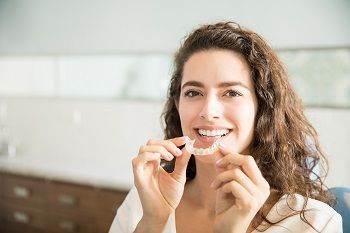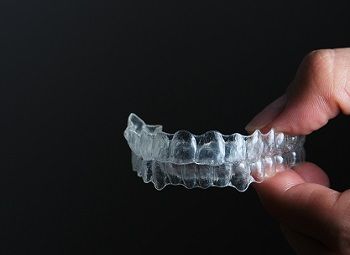Why Retainers Are Essential for Maintaining Your Orthodontic Results?
Dr. Hoss Abar
Orthodontic treatment is an investment in your oral health and the appearance of your smile. Whether you've undergone braces or clear aligner treatment, the results of your orthodontic treatment can be life-changing. However, it's essential to understand that the teeth naturally want to return to their original positions over time. This is why retainers are an essential component of orthodontic treatment. In this blog post, we will discuss the importance of retainers in maintaining orthodontic results, the science behind how they work, and tips for proper retainer care and maintenance.
Understanding Teeth Shifting
After orthodontic treatment, teeth may want to shift back to their original positions due to several factors, such as age, growth, genetics, and the constant pressure of chewing and speaking. If you do not wear a retainer, your teeth may relapse, undoing the progress made during your orthodontic treatment. This is why retainers are necessary to maintain your orthodontic results. Retainers are essential because:
- They prevent teeth from shifting back to their original position after removing braces.
- Help stabilize the teeth in their new position until they become more permanently set in place.
- Maintain the alignment and spacing achieved through orthodontic treatment
- Ensure a healthy and functional bite by keeping the teeth in their proper position
- Prevent future orthodontic treatment by maintaining the results of previous treatment
- Improve overall dental health by making it easier to clean and care for teeth that are properly aligned and spaced

Importance of Retainers in Maintaining Orthodontic Results
Retainers play a crucial role in maintaining the results of orthodontic treatment. By wearing a retainer, you can keep your teeth in their new positions and prevent them from returning to their original positions. This helps ensure your smile remains healthy, functional, and aesthetically pleasing.
The following points further elaborate on the importance of retainers in maintaining orthodontic results:
- Prevents Teeth Shifting: The most significant role of retainers is to prevent the teeth from shifting back to their previous position. Teeth tend to shift, and the chances of returning to their original position are high after removing braces or aligners. Retainers are designed to keep the teeth in their new position and prevent them from relapsing.
- Enhances Oral Health: Wearing a retainer ensures that your teeth remain healthy and stable, which can contribute to overall oral health. Straighter teeth are easier to clean and maintain, reducing the risk of tooth decay and gum disease.
- Comfortable Treatment: Retainers are usually customized to fit your teeth' unique shape and size, ensuring they are comfortable to wear. They are generally made from high-quality materials that are safe and non-toxic.
- Affordable Treatment: Retainers are an affordable way to maintain orthodontic results. They are less expensive than orthodontic treatments like braces or aligners and can last several years if taken care of properly.
- Easy to Wear and Maintain: Retainers are easy to wear and maintain. They can be removed for eating and brushing and require minimal cleaning. Most retainers can be cleaned with a toothbrush and mild soap, making them easy to maintain.
The Science Behind Retainers: How They Work
Retainers work by exerting pressure on your teeth, which helps keep them in their new positions. There are different types of retainers, such as Hawley retainers, clear plastic retainers, and fixed retainers. Each class works uniquely, but they all serve the same purpose of maintaining orthodontic results.
Retainer Wear Instructions: Frequency and Duration
The frequency and duration of retainer wear will depend on your orthodontic treatment and your orthodontist's instructions. Generally, dentists recommend wearing a retainer for at least 22 hours daily for the first few months after orthodontic treatment. After this initial period, your orthodontist may recommend wearing the retainer only at night or for several hours daily.
The specifics of retainer wear can vary depending on the individual's orthodontic treatment plan, but here are some general guidelines for frequency and duration:
- Wear your retainer as instructed by your orthodontist. This may mean wearing it full-time for weeks or months and gradually transitioning to nighttime wear only.
- For many people, nighttime wear is sufficient for maintaining orthodontic results. Your orthodontist may recommend wearing your retainer every night for a specific time (e.g., 6 months, 1 year, or longer).
- Sometimes, your orthodontist may recommend wearing your retainer for a more extended period or indefinitely to prevent teeth relapse.
- Be sure to clean your retainer regularly with a soft-bristled toothbrush and mild soap to prevent bacteria buildup and odors.
- Do not expose your retainer to heat or hot water, which can cause it to warp and lose shape.
- If your retainer becomes damaged or warped, contact your orthodontist for instructions on how to proceed.
- Do not wear your retainer while eating or drinking anything other than water.
If you have any concerns or questions about retainer wear, don't hesitate to contact your orthodontist for guidance.

Tips for Proper Retainer Care and Maintenance
Proper care and maintenance of your retainer are essential to ensure that it continues to work effectively and lasts for a long time. Some tips for adequate retainer care and maintenance include:
- Clean your retainer daily with a soft-bristled toothbrush and mild soap or denture cleaner.
- Do not expose your retainer to hot water, as it can cause it to warp or lose its shape.
- Store your retainer in a protective case when not in use to prevent damage or loss.
- Do not eat or drink while wearing your retainer to avoid damage and bacteria buildup.
- Visit your orthodontist regularly for check-ups and to have your retainer adjusted if necessary.
Consequences of Not Wearing Retainers: Risks of Teeth Relapse
Not wearing your retainer as instructed by your orthodontist can have effects. Teeth may return to their original positions, undoing the progress made during orthodontic treatment. This can lead to bite problems, jaw pain, and other oral health issues. It's essential to take retainer wear seriously and follow your orthodontist's instructions carefully.
Neglecting to wear a retainer as prescribed by your orthodontist can lead to a host of potential consequences, including:
- Teeth relapse: This is the most common and significant consequence of not wearing a retainer. Relapse occurs when teeth gradually shift back toward their original positions, undoing the progress made during orthodontic treatment. This can result in a misaligned bite and can require further orthodontic treatment to correct.
- Bite problems: Teeth that have shifted out of place can cause problems with your bite, including difficulty chewing, jaw pain, and even speech problems.
- Increased risk of tooth decay and gum disease: When teeth shift out of position, they can become more challenging to clean, leading to an increased risk of tooth decay and gum disease.
- Cosmetic concerns: If you underwent orthodontic treatment for cosmetic reasons, not wearing your retainer can result in a less-than-perfect smile. This can negatively impact your self-confidence and overall quality of life.
It is important to note that the severity of these consequences can vary depending on the individual and their unique orthodontic situation. However, it is always better to err on the side of caution and follow your orthodontist's instructions for retainer wear to ensure the best possible outcome.
Conclusion
In conclusion, retainers are an essential part of orthodontic treatment that helps maintain the results achieved from braces or aligners. Teeth shifting is a natural process that can occur over time, and wearing a retainer helps to prevent the teeth from moving back into their original position.
Retainers for life can provide long-term benefits, including a healthy and straight smile, improved oral hygiene, and reduced risk of oral health problems. It is essential to consider the benefits of long-term retainer wear and to work with the orthodontist to develop a plan for continued use. Wearing retainers is necessary to maintain the results achieved from orthodontic treatment. Understanding teeth shifting and the importance of retainers in preventing relapse can help you take the required steps to keep your smile healthy and beautiful for life. Proper care and maintenance of retainers and consistent wear can ensure your effectiveness and long-term benefits.
Contact your Pinole dentist, Dr. Hoss Abar, DDS, MSD at Abar Orthodontics, to know why Retainers are essential for maintaining your Orthodontic results.
Resource:
*This media/content or any other on this website does not prescribe, recommend, or prevent any treatment or procedure. Therefore, we highly recommend that you get the advice of a qualified dentist or other medical practitioners regarding your specific dental condition*
More To Explore
About Us
We believe that every patient deserves to feel confident about their smile. Years of experience creating beautiful and flawless smiles.
Opening Hours:
Monday - Thursday: 8:00 AM - 5:00 PM
Friday: 8:00 AM - 12:00 PM
Saturday - Sunday: Closed
Abar Orthodontics, Pinole, CA
1500 Tara Hills Drive., Suite 204
Pinole, CA 94564
Abar Orthodontics, San Leandro, CA
145 East 14th street., #100
San Leandro, CA 94577
© 2026Abar Orthodontics | All rights reserved | Powered by:Vigorant, Inc.
